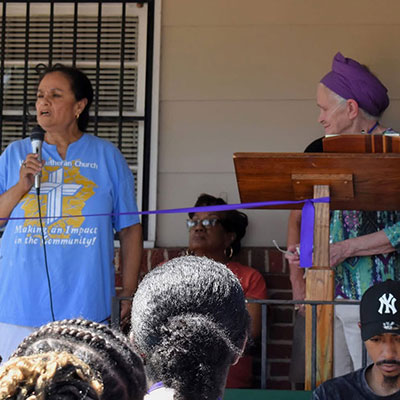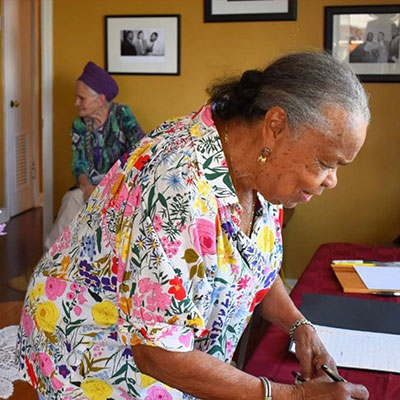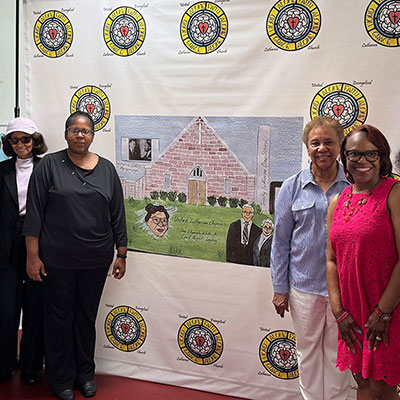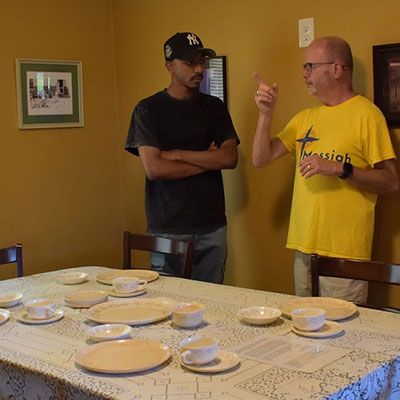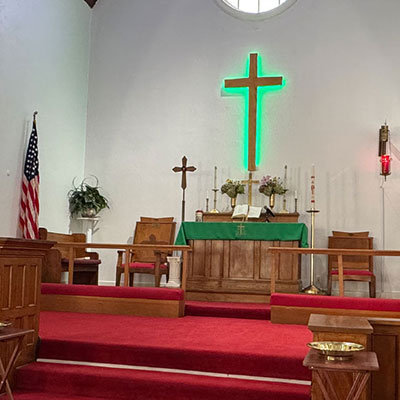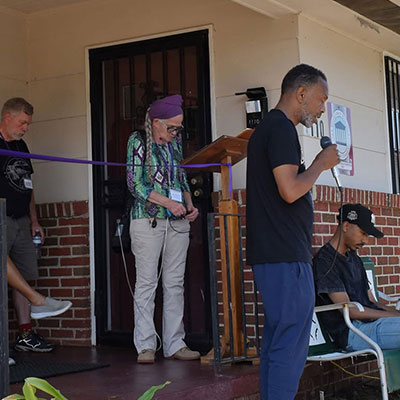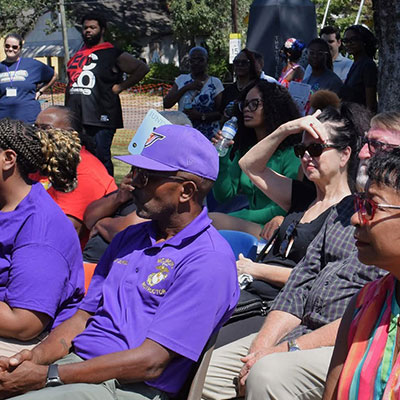November 14, 2025
A Journey of Family, History and Legacy: Reflecting on the Graetz Celebration
N. Malik Crosshwite, ’28
M.Div., Trinity Lutheran Seminary
On September 26, 2025, I arrived in Montgomery, Alabama, with a mix of excitement and exhaustion. After a small mishap retrieving my checked bag, a kind woman with a bright smile approached to help. She noticed my frustration and with her warmth and easy hospitality, she reminded me of the spirit I’d grown up around being that my family is from Alabama. That familiar feeling of familial grace that meets you right where you are.
My trip to Montgomery had been arranged by Trinity Lutheran Seminary so that I could join the Robert S. and Jean E. Graetz Foundation and the United Evangelical Lutheran Church in celebrating the remarkable legacy of Rev. Robert S. and Jean E. Graetz. The weekend’s events included a ribbon-cutting ceremony for the Graetz parsonage, now part of the Selma to Montgomery National Historic Trail, and a literacy fair where children received enriching books, like the book Rosa Parks’ family brought to hand out titled, “Our Auntie Rosa.”
Throughout the day, I was surrounded by living history. I met the Graetz children, Meta and David, and listened as community members shared heartfelt memories of growing up alongside the Graetz family in a rare, integrated neighborhood during the mid-1950s. Their stories painted a vivid portrait of a household, where love defied segregation. Children of every color playing together, a backyard pool welcoming those barred from the whites-only one nearby, and a pastor who preached justice even after his home was bombed for doing so.
On Sunday, I joined worship at United Evangelical Lutheran Church (formerly Trinity Lutheran), the congregation Rev. Graetz once pastored. Sitting before the same pulpit and furniture he used, I felt the enduring power of faith lived out in action. During the offering, I noticed a familiar face and became frustrated that I could not put a name to the face. This bothered me for the rest of the service. It wasn’t until after worship where I connected with this woman over coffee and donuts. While talking the woman unleashed a bright smile, and it was then where I realized it was the same woman who had helped me at the airport. I shared with her when I would be leaving, and she assured me she would see me there. When I arrived at the airport, sure enough there she was. For the remainder of my time in Montgomery, we joyfully began sharing stories and laughter until tears filled her eyes. When it came time to part ways at the airport, she hugged me tightly and said, “You’re family, so don’t be a stranger.” All I could say was “wow.”
I can’t remember her name, yet I carry her presence with me. After that impactful act of kindness, I recognized in my reflection that this trip, from start to finish, allowed me to experience the living legacy of Robert and Jean Graetz. A legacy of inclusion, love, and family that transcends time and place. Just as the Graetzes invited people into their family, some countless years later their spirit still lives on through the kind souls connected to the parish he once led, simply inviting strangers into the family.
Editor’s note: Robert Graetz graduated from Capital University in 1950, earning a bachelor’s degree with a major in social science before graduating from Evangelical Lutheran Theological Seminary (which today is Trinity Lutheran Seminary at Capital University) in 1953. Jean Ellis Graetz graduated from Capital in 1953. In 2019, the work of Bob and Jeannie Graetz was one of the stories featured in “Capital in the Sixties,” a student-led immersion class documentary project about Capital University from 1965-1975. Click here to watch “Capital in the Sixties.”
